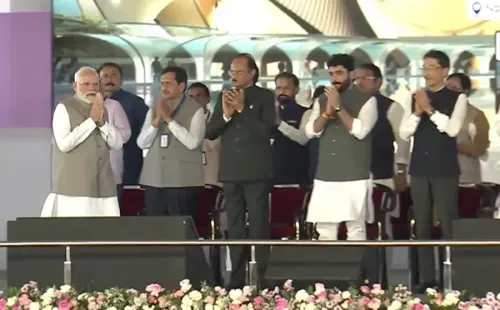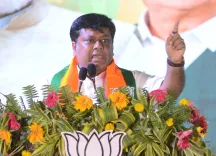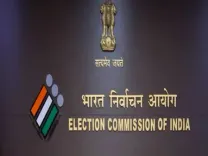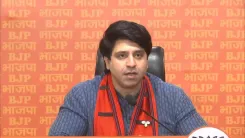Are Rahul Gandhi's Attacks on the ECI a Betrayal of Constitutional Values?
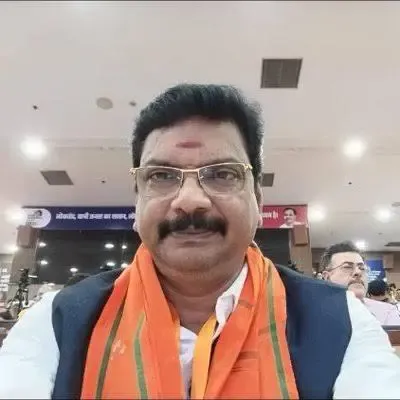
Synopsis
Key Takeaways
- Rahul Gandhi's attacks on the ECI are seen as damaging to public trust.
- Prasad emphasizes the ECI's independence and integrity.
- Gandhi's history of allegations against Modi has not led to electoral success.
- The BJP maintains strong voter confidence in key states.
- Future political relevance for Congress hinges on adopting a constructive approach.
Chennai, Aug 14 (NationPress) Tamil Nadu BJP spokesperson A.N.S. Prasad has sharply criticized Congress leader Rahul Gandhi, accusing him of a persistent 11-year effort to undermine Prime Minister Narendra Modi and the Election Commission of India (ECI).
Prasad asserted that Gandhi's recent remarks about "vote theft" represent an attempt to liken the ECI, which is an independent constitutional entity, to the Congress party's "corrupt and self-serving" governance history.
The senior BJP figure claimed that, unlike Congress governments under former Prime Minister Manmohan Singh or current party president Mallikarjun Kharge, the ECI operates with full autonomy as established by Dr. B.R. Ambedkar.
He described the Commission as a "globally esteemed institution" that oversees free and fair elections, and stated that Gandhi's comments were an attack on India's democratic principles.
"These statements are a betrayal of our Constitution's essence and undermine public confidence in democratic institutions," Prasad remarked.
According to the BJP spokesperson, since 2014, Gandhi's political tactics have been characterized by "groundless accusations" against PM Modi, which have consistently been disproven by electoral outcomes, judicial evaluations, and public backing.
Referring to various instances from demonetisation to the Rafale deal, farm law protests, the China border situation, and the GST implementation, Prasad claimed that Gandhi's efforts have faltered in the face of factual evidence and voter disapproval. He also accused Gandhi of inciting caste, communal, and separatist divisions instead of fostering development and national unity.
On the topic of demonetisation, Prasad pointed out that Gandhi's predictions of economic failure proved incorrect as digital transactions thrived, even among street vendors.
He recalled the backfire of the 'Chowkidar Chor Hai' slogan during the Rafale controversy, which led to Gandhi's defeat in Amethi in 2019 and an ensuing court apology.
Regarding the farmers' protests, Prasad mentioned that PM Modi's repeal of the farm laws did not yield any electoral advantage for Congress, while the BJP maintained voter trust in crucial states.
Prasad dismissed Gandhi's claims regarding the Citizenship Amendment Act, asserting it as a humanitarian initiative consistent with India’s secular principles.
He pointed out that Gandhi's criticisms of industrialists Adani and Ambani were politically unwise, especially considering investments by these companies in Congress-led states.
Additionally, he stated that Gandhi's concerns about the China border situation were contradicted by allies and lacked substantial evidence.
Referencing the recent ECI denials of "vote theft" allegations in Maharashtra and Karnataka, Prasad emphasized that Congress failed to present proof, with even a state minister stepping down. He urged Gandhi to instead call for investigations into supposed voter fraud in Rae Bareli, Wayanad, and Kolathur, as raised by BJP MP Anurag Thakur.
Prasad concluded that unless Rahul Gandhi adopts a "constructive, patriotic, and development-focused" political stance, Congress risks diminishing electoral relevance as India moves toward becoming a global superpower by 2047 under PM Modi's leadership.

